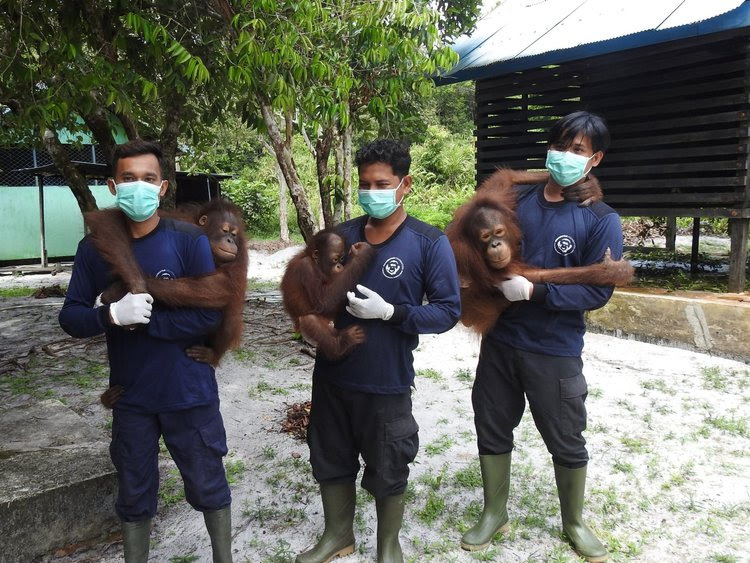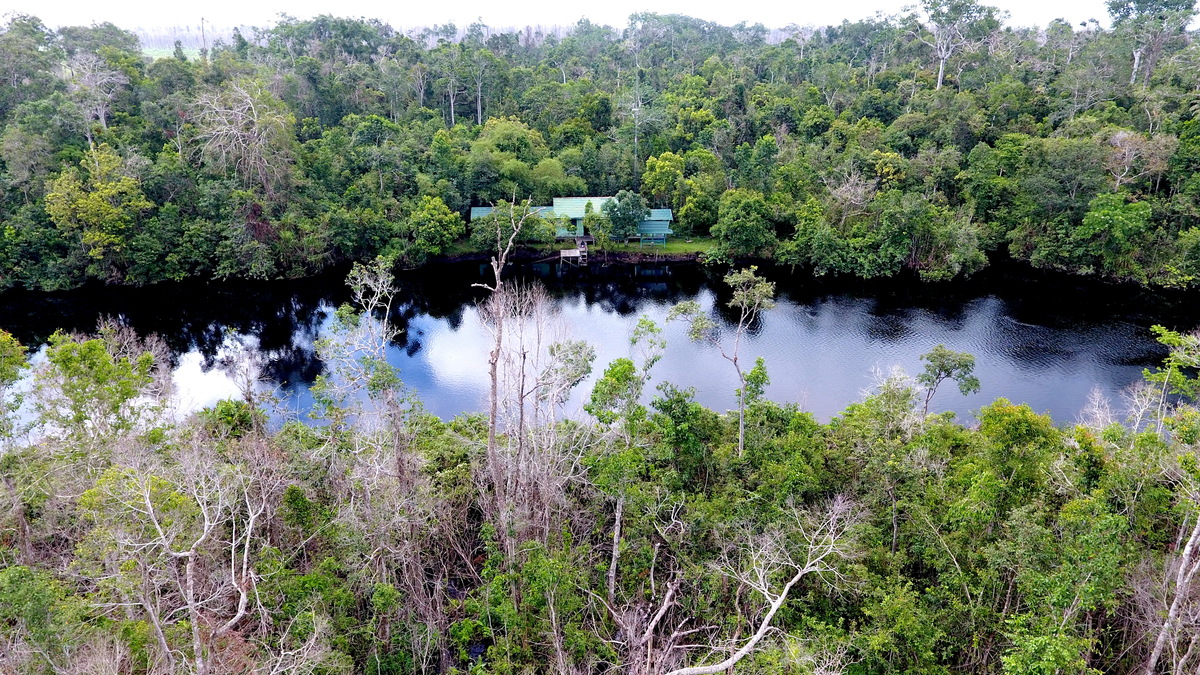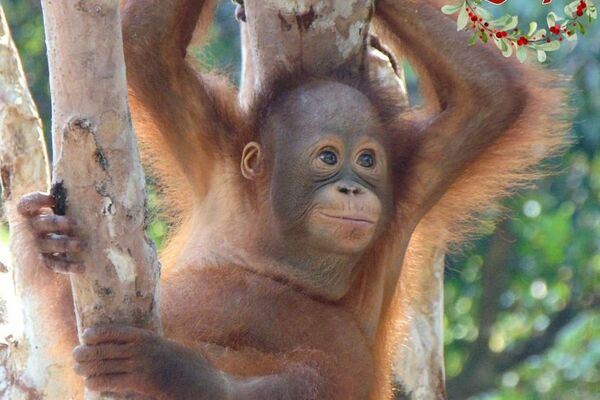
Orphaned orangutans rescued by the Orangutan Foundation in Indonesian Borneo are often too young to be released to the wild on their own.
A soft-release programme - a forest school for orangutans - runs in the Lamandau Wildlife Reserve and ensures rescued orangutans have a safe place to sleep, forage and learn essential survival skills under the watchful eye of camp staff and an expert team of vets.
24 orangutans have been successfully re-wilded through this programme to date.
There are five orphans currently at Lamandau. Before they can graduate to the wild forest, the orphans must develop a full suite of survival skills showing proficiency in climbing, foraging and nest building.
Here is an update on three of the orphans.
Mona
Mona was rescued in March 2017 as an infant. She was being kept in a cage as a pet. Her mother was most likely killed when she was taken.
Now aged seven, Mona is very good at finding food on her own in the forest and is a capable climber. She is also very playful.
Mona displays teen tendancies - she would ideally show more focus and dedicate more time to her nest-building skills, but when left overnight in the forest she has proven she is adept at making a nest if she really has to! This a good sign - orangutans need to build a new nest every night for shelter.
Adib
Like Mona, Adib was also rescued after being held captive as a pet. He was rescued from a different part of Central Kalimantan - he was just one and a half years old when he was rescued and he had never climbed a tree.
Thanks to Orangutan Foundation, the two have formed a firm friendship and have a chance for a wild life back in the forests of Indonesian Borneo.
Adib is quite large and strong now with long hair - he is also very mischievous! Although his forest skills are not quite as developed as Mona's, he is showing signs of being ready for an independent life by climbing, foraging and occasionally nest-building!
Mona and Adib are taken to different parts of the forest each day so they can develop their forest skills, otherwise all they would do is play together!
Logos
Logos was rescued from the island of Java where he was being kept as a pet in a cage. He is a 3 year old male who arrived at Camp Lamandau in October 2023.
Logos is climbing and finding and eating the odd Ubar fruit already, which is very positive although he doesn't like the staff to go too far away from him and is still quite shy. It is hoped he will grow in confidence as he spends longer spells in the forest, builds trust and learns more skills. He enjoys a bit of rough and tumble with the older orphans, Mona and Adib.
Human-wildlife conflict is the most common reason for an orangutan to be orphaned. 80% of orangutans live outside of protected areas. While rescues take place on palm-oil plantations, the team are increasingly called to village settings.
Climate change may exacerbate this situation as unpredictable weather causes havoc with the availability of food (fruit) in the forest leading orangutans to explore other areas.
We supported forest restoration with OF in 2022. Forest protection and restoration is absolutely vital to the orangutan's survival.
Image at top: orphans from left to right - Mona, Logos and Adib. Image courtesy of the Orangutan Foundation

The Orangutan Foundation
The Orangutan Foundation is a charity based in the UK established by Ashley Leiman OBE that has been supporting orangutan conservation in Indonesia for more than 30 years. The focus of its work is to protect orangutans and their tropical forest habitats, monitor orangutans that have been released back to the wild, restore destroyed forest habitats, and raise awareness of forest conservation. All their programmes are carried out in collaboration with local stakeholders and the Indonesian Government’s Ministry of Environment and Forestry.
Lamandau
The Lamandau Wildlife Reserve is a conservation area in western Central Kalimantan, Indonesian Borneo, that was established in 1998 from two former logging concessions. It mainly comprises peat swamp forests that store more than 36.5 million tons of carbon. Through their reintroduction programme, the Orangutan Foundation has helped to create and maintain a viable, self-sustaining orangutan population of over 600 individuals in the reserve, as well as increasing the area of prime forest habitat under conservation by 29%.
Journey to Borneo to see orangutans and other wildlife with our Responsible Travel Programme
Image: Lamandau Wildlife Reserve, OF




